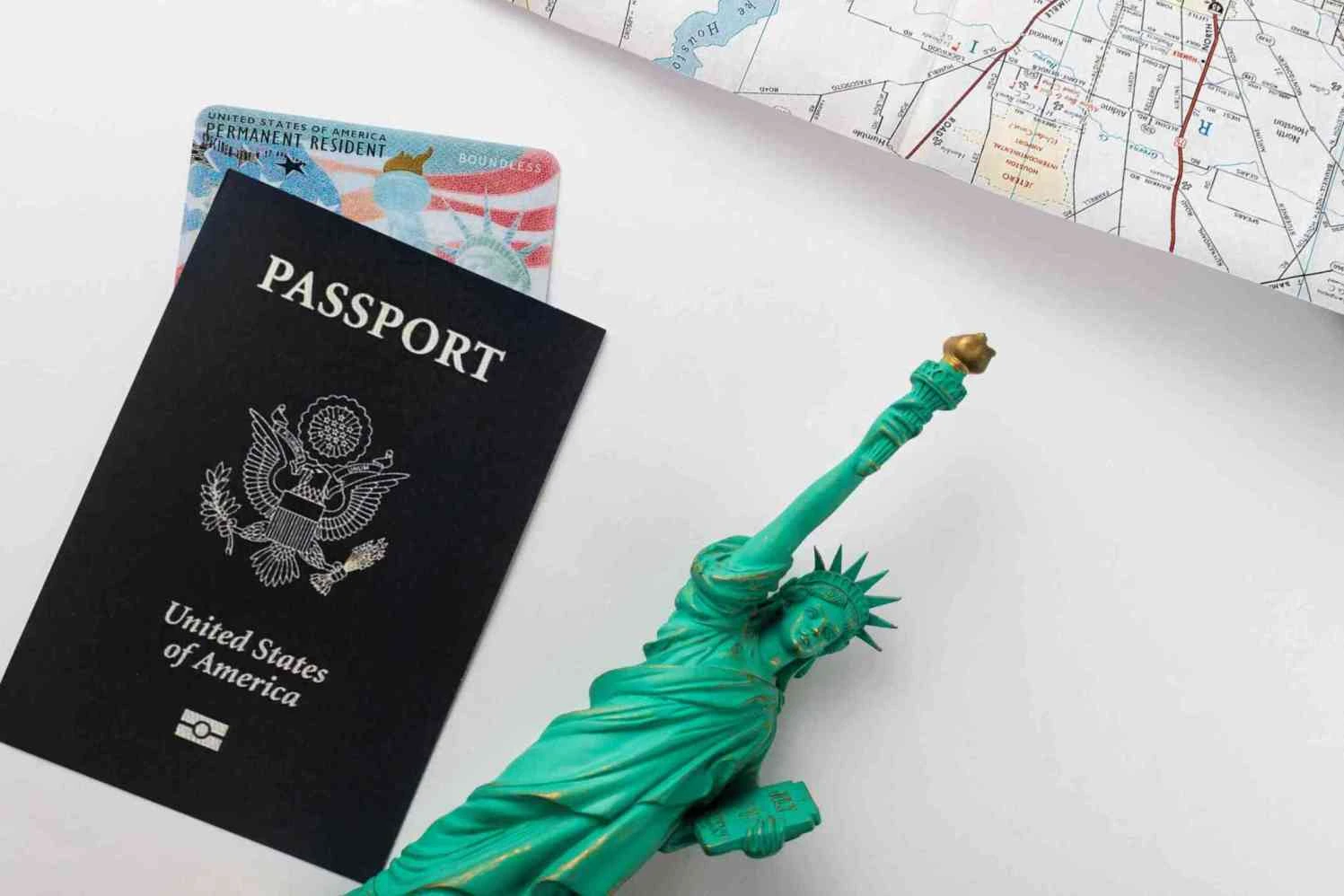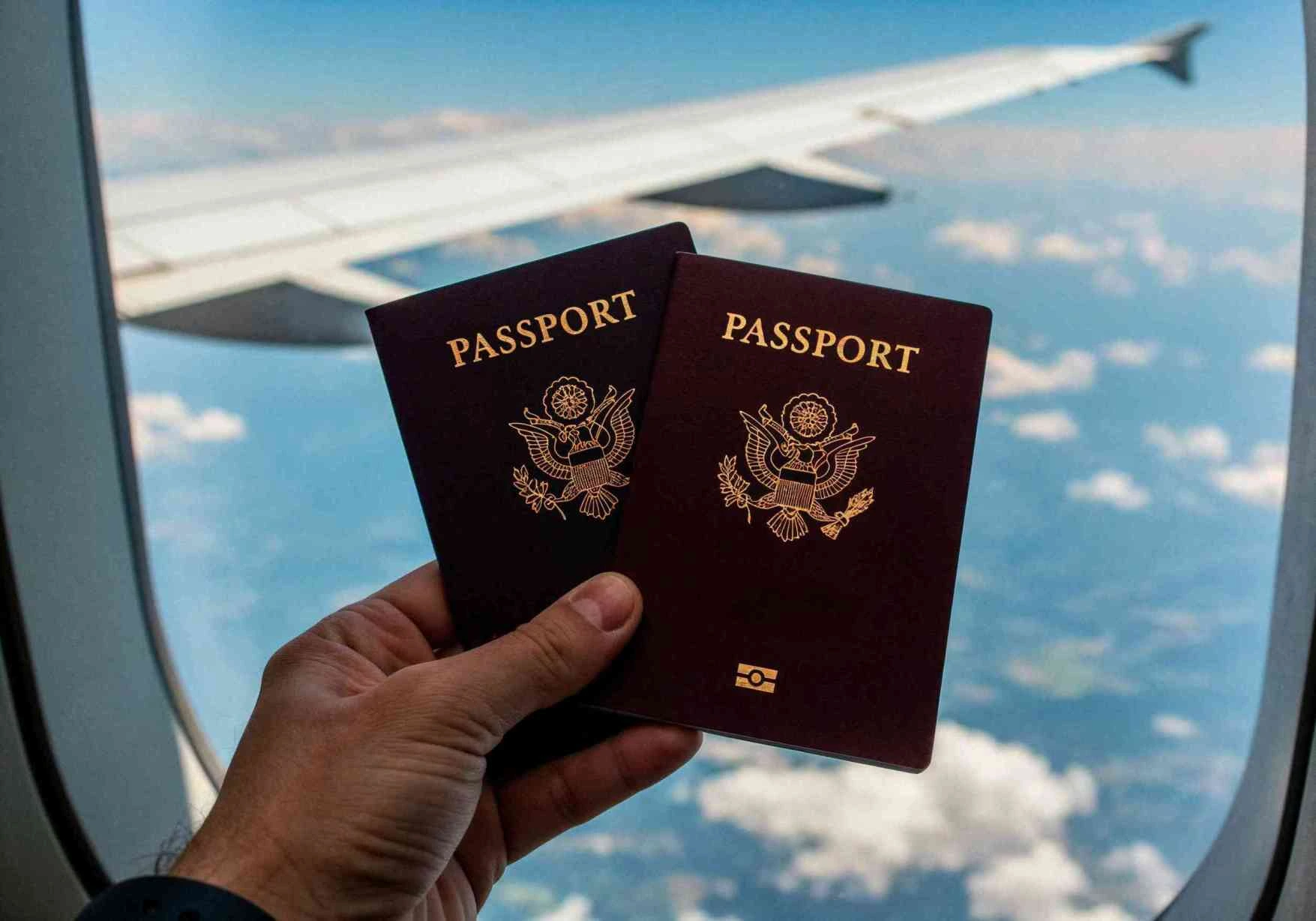The Easiest Countries to Get Dual Citizenship in 2025
- Ahmed hamdy Ahmed hamdy
- 0 Comments
More U.S. citizens are exploring dual citizenship as a way to expand their personal and financial freedom. A second passport offers flexibility, global mobility, investment options, and security in an increasingly uncertain world. But with dozens of countries offering different paths to dual citizenship, choosing the easiest country to get dual citizenship can be overwhelming.
This guide outlines the simplest, fastest, and most practical routes for Americans to obtain dual citizenship. It explains how the process works, highlights countries that allow dual citizenship with the United States, and provides expert insights into timelines, costs, legal obligations, and benefits. The information presented here is based on the latest global research, legal analysis, and real-world experience helping individuals secure second passports.
What Is Dual Citizenship?
Dual citizenship means that a person holds legal citizenship in two countries at the same time. Each country recognizes the person as its citizen, with full rights and obligations in both nations. This includes the ability to live, work, vote, own property, and access public services in both countries.
For example, a U.S. citizen who obtains Italian citizenship would hold both U.S. and Italian passports. They can live and work freely in either country and benefit from the rights each nation provides.
How Does Dual Citizenship Work for U.S. Citizens?
The United States allows dual citizenship. U.S. citizens may acquire a second nationality without automatically losing their American citizenship. However, they are required to enter and exit the United States using their U.S. passport and continue to comply with U.S. tax laws, even if living abroad.
Many countries permit U.S. citizens to obtain dual citizenship, but some nations impose restrictions or prohibit multiple citizenship entirely. Understanding these rules is critical when selecting a country for a second passport.
Difference Between Dual Citizenship, Second Citizenship, and Multiple Citizenship
While often used interchangeably, these terms have distinct legal meanings:
- Dual citizenship refers to holding citizenship in exactly two countries.
- Second citizenship generally describes acquiring citizenship in any additional country beyond one’s original nationality.
- Multiple citizenship involves holding citizenship in more than two countries.
The legal recognition of each additional citizenship depends on the policies of the countries involved. Some nations allow unlimited multiple citizenships, while others require renunciation of prior citizenships upon naturalization.
Can You Get Citizenship in Other Countries While Keeping U.S. Citizenship?
Yes. U.S. citizens are permitted to acquire foreign citizenship without losing their U.S. nationality. The key is whether the foreign country allows dual citizenship with the United States. Many nations — such as Ireland, Italy, Dominica, Israel, and several others — fully allow Americans to maintain both passports. Conversely, countries like Japan, China, and Saudi Arabia often require renunciation of other citizenships.
Many Americans have successfully obtained second passports while retaining their U.S. citizenship. This guide will examine which countries offer these opportunities and how Americans can pursue them.
Benefits of Dual Citizenship
Holding dual citizenship offers substantial advantages:
- Visa-free access to countries that may be difficult to enter with a U.S. passport alone.
- Expanded investment opportunities in property, businesses, and financial markets that may be closed to non-citizens.
- Access to quality healthcare and education systems in both countries.
- Legal right to live, work, and retire in both nations.
- Intergenerational benefits, as citizenship can often be passed to children.
- Greater security and flexibility during political or economic instability.
- Strategic tax planning opportunities through foreign earned income exclusions, tax treaties, and credits.
For individuals with a global lifestyle, business interests, or family abroad, these advantages of dual citizenship can be life-changing.
Disadvantages and Potential Risks to Consider
While the benefits are significant, dual citizenship also comes with certain obligations and challenges:
- Continued U.S. tax reporting requirements, regardless of where income is earned or where the citizen resides.
- Possible military service obligations in some countries.
- Legal obligations and potential exposure to legal systems in both countries.
- Restrictions on certain U.S. government jobs that require security clearance.
- Diplomatic complications in times of political conflict.
These risks can usually be managed with proper legal advice, but they are important to evaluate before pursuing dual citizenship.
Main Ways to Acquire Dual Citizenship
Individuals seeking a second passport have multiple pathways available, each with its own eligibility criteria.
By Birthplace (Birthright Citizenship)
Birthright citizenship, or jus soli, grants automatic citizenship to individuals born within a country’s territory. The United States practices this system. Some other nations, such as Canada and Mexico, also allow citizenship by birth, creating opportunities for dual citizenship if children are born there to American parents.
By Descent (Ancestry)
Citizenship by descent, or jus sanguinis, is often the easiest path for Americans with family roots in another country. Countries like Ireland, Italy, and Poland allow descendants of citizens to reclaim citizenship by proving lineage. The required documentation typically includes birth certificates, marriage records, and other evidence connecting the applicant to their ancestral homeland.
Through Marriage
Many countries grant citizenship more easily to spouses of citizens. While requirements vary, marriage often shortens residency periods and simplifies the naturalization process.
Through Naturalization
Naturalization involves legally residing in a country for a specific period, typically several years, and meeting additional requirements such as language proficiency, knowledge of the country’s history and laws, and good moral character. Countries like Argentina, Paraguay, and Brazil offer naturalization timelines that are shorter than global averages, making them attractive options.
Through Investment (Citizenship-by-Investment Programs)
Citizenship by Investment Programs (CBI) allow individuals to obtain citizenship quickly by contributing financially to a country’s economy. Popular investment destinations include Dominica, St. Kitts & Nevis, Antigua & Barbuda, Vanuatu, and Turkey. These programs typically involve donations, real estate purchases, or business investments and can often secure citizenship within months.
Countries That Allow Dual Citizenship with the United States
One of the most important considerations for U.S. citizens pursuing a second passport is whether their chosen country permits dual citizenship alongside U.S. nationality. Many countries allow Americans to maintain both passports without requiring them to give up their U.S. citizenship.
Europe offers several attractive options for U.S. citizens. Many countries not only allow dual citizenship but also offer streamlined processes for Americans with ancestral ties.
Ireland
Ireland offers one of the most accessible paths to dual citizenship for Americans of Irish descent. If an applicant has a parent or grandparent born in Ireland, they may qualify for Irish citizenship through the Foreign Births Register. Irish citizenship grants full EU rights, including the ability to live and work throughout the European Union.
Italy
Italy provides citizenship by descent to individuals with Italian ancestry. The eligibility extends to great-grandparents in some cases, though certain restrictions apply for maternal lineage prior to 1948. Italy’s favorable laws make it one of the easiest places to obtain dual citizenship through ancestry.
Spain
Spain allows dual citizenship for citizens of select Latin American countries but typically requires U.S. citizens to renounce their American citizenship. However, exceptions exist under certain residency or ancestry circumstances.
Portugal
Portugal offers both Portogal residency-by-investment (Golden Visa) and naturalization options for U.S. citizens. After five years of legal residency, applicants may apply for citizenship without having to renounce their U.S. passport.
Hungary
Hungary allows citizenship by descent for those who can prove ancestral links. The process generally requires demonstrating that a parent, grandparent, or sometimes great-grandparent was Hungarian.
Poland
Poland permits Americans with Polish ancestors to reclaim citizenship if proper lineage documentation can be provided. This process is particularly popular among U.S. citizens of Eastern European descent.
Caribbean Countries
Several Caribbean nations offer citizenship-by-investment programs that permit dual citizenship with the United States. These programs have become highly attractive for U.S. citizens seeking quick and efficient second passports.
Dominica
Dominica’s citizenship-by-investment program offers one of the most affordable and straightforward citizenship-by-investment programs globally. With a minimum investment starting at $100,000, citizenship can typically be granted within three to six months. Dominica’s passport allows visa-free travel to over 140 countries.
St. Kitts & Nevis
St. Kitts & Nevis citizenship operates one of the longest-standing CBI programs, established in 1984. The investment starts at $150,000 for a donation option or $200,000 for real estate. Citizenship is usually granted within three to six months, with expedited options available.
Antigua & Barbuda
Antigua & Barbuda’s investment program offers attractive family packages, making it one of the most affordable for larger families. The minimum investment starts at $100,000, with processing times averaging three to six months.
Other Popular Countries
Paraguay
Paraguay offers one of the least expensive and fastest naturalization routes. A bank deposit of approximately $5,000 is typically sufficient to establish residency, and citizenship can often be obtained after three years.
Vanuatu
Vanuatu has one of the world’s fastest citizenship-by-investment programs, often completing the process within one to two months. A donation of approximately $130,000 is required.
Read more about Vanuatu’s fast-track program.
Turkey
Turkey allows citizenship through a real estate investment of at least $400,000. The application process is streamlined, with approvals often granted within four to six months.
New Zealand
New Zealand allows dual citizenship and offers straightforward pathways for those with family ties or those who meet residency requirements.
These countries represent some of the most accessible options for U.S. citizens. In the next section, we’ll present a direct side-by-side comparison to help you evaluate the best fit based on cost, processing time, and complexity.
The following comparison table summarizes the key details of the easiest countries to gain dual citizenship for U.S. citizens in 2025:
| Country | Type | Timeframe | Cost | Process Difficulty | Main Benefit |
| Ireland | Descent | Immediate | Low | Easy (if eligible) | EU Passport |
| Italy | Descent | Immediate | Low | Easy (if eligible) | EU Passport |
| Dominica | Investment | 3-6 months | $100k+ | Easy | Visa-Free Access |
| Paraguay | Naturalization | 3 years | Low | Moderate | Low Cost |
| St. Kitts & Nevis | Investment | 3-6 months | $150k+ | Easy | Fast Processing |
| Vanuatu | Investment | 1-2 months | $130k+ | Easy | Fastest Option |
| Israel | Birthright/Descent | Immediate | Free | Easy | Law of Return |
| Turkey | Investment | 3-4 months | $400k+ | Easy | Real Estate Path |
| Argentina | Naturalization | 2 years | Low | Easy | Fast Naturalization |
| New Zealand | Family/Residency | Varies | Low | Easy (if eligible) | Visa-Free Access |
| Portugal | Residency/Naturalization | 5 years | Mid-range | Moderate | Full EU Access |
This table can serve as a quick reference for evaluating which program may be most suitable based on your individual priorities — speed, cost, or eligibility.
Detailed Country-By-Country Dual Citizenship Options
We’ll take a deeper look at each of the most accessible countries for U.S. citizens seeking dual citizenship, highlighting the requirements, timelines, and unique advantages of each.
Ireland – Dual Citizenship by Descent
Ireland is one of the easiest countries for Americans of Irish ancestry to obtain dual citizenship. If you have a parent or grandparent born in Ireland, you are typically eligible to register for Irish citizenship through the Foreign Births Register. This process is straightforward, well-established, and offers full rights of EU citizenship upon approval.
Irish citizenship allows U.S. citizens to live, work, and study across the entire European Union, making it highly valuable for those seeking freedom of movement and new business or lifestyle opportunities.
Read more about which country gives free citizenship in Europe
Italy – Citizenship by Ancestry
Italy offers one of the most generous ancestry-based citizenship programs globally. Applicants may qualify if they have an Italian parent, grandparent, or even great-grandparent. Italy places few limits on generational distance but does require careful documentation of the family lineage.
Women could only pass citizenship to children born after 1948, creating some limitations based on maternal descent. Applications involve collecting vital records from multiple jurisdictions, often requiring translations and apostilles.
Once granted, Italian citizenship offers full EU benefits, visa-free travel, and excellent opportunities for living and working across Europe.
Dominica – Fast Citizenship by Investment
Dominica’s citizenship-by-investment program is one of the most efficient and affordable in the world. For a minimum donation of $100,000 to the government’s Economic Diversification Fund, applicants can secure citizenship within 3 to 6 months. The program also offers real estate investment options starting at $200,000.
Dominica’s passport grants visa-free access to over 140 countries, including the Schengen Zone, the UK, and Hong Kong. It’s a highly popular option for Americans seeking quick second citizenship with minimal residency or language requirements.
St. Kitts & Nevis – Investment Path
St. Kitts & Nevis’ citizenship by investment program established the world’s first formal citizenship-by-investment program in 1984, making it one of the most trusted in the industry. Investors can obtain citizenship through a $150,000 donation to the Sustainable Growth Fund or a $200,000 real estate purchase.
With processing times as short as three to six months (or expedited options even faster), the program offers one of the fastest and most reputable paths to dual citizenship.
Vanuatu – Quickest Investment Citizenship
Vanuatu boasts one of the world’s fastest processing times, often completing citizenship approvals within just 30 to 60 days. Applicants make a donation starting at $130,000 to qualify.
Vanuatu’s passport offers visa-free access to over 130 countries. While it lacks some of the broader access of EU or Caribbean passports, its speed and simplicity make it extremely attractive for those who need a second passport quickly.
Paraguay – Naturalization Option
Paraguay offers one of the most affordable paths to citizenship through naturalization. By depositing approximately $5,000 into a Paraguayan bank and maintaining residency for three years, applicants may apply for citizenship.
While less internationally recognized than some Caribbean or European passports, Paraguay offers visa-free travel to many countries and a relatively simple, low-cost path to second citizenship.
Turkey – Investment-Based Citizenship
Turkey citizenship by investment program. offers citizenship through a streamlined real estate investment program. By purchasing property valued at $400,000 or more, applicants can secure citizenship typically within 4 to 6 months.
Turkey’s passport allows visa-free access to over 110 countries, and the country’s strategic location between Europe and Asia offers additional economic and lifestyle benefits.
Portugal – Pathway Through Residency
Portugal’s Golden Visa and naturalization programs are some of the most attractive options in Europe. Through investment or legal residency, applicants can become eligible for citizenship after five years.
Portugal allows dual citizenship, offers high-quality healthcare, low cost of living, and visa-free travel throughout the EU and Schengen Area.
Argentina – Easiest Naturalization in South America
Argentina offers one of the world’s fastest naturalization timelines. After just two years of legal residency, applicants may apply for citizenship. There are no strict income or language requirements, and Argentina allows dual citizenship with the United States.
Argentina’s vibrant culture, low cost of living, and visa-free access to much of South America make it an attractive choice for many Americans.
New Zealand – Family-Based and Residency Routes
New Zealand allows dual citizenship and provides pathways through ancestry or long-term residency. While its processing times can vary, citizenship is accessible for those willing to meet residency requirements over several years.
New Zealand’s passport ranks among the strongest globally, offering visa-free access to over 180 countries.
Countries That Do Not Allow Dual Citizenship (Important Restrictions)
While many countries welcome dual citizenship, several nations still prohibit or restrict holding multiple citizenships. For U.S. citizens considering dual citizenship, it’s crucial to avoid countries that would force you to renounce your American nationality. The following nations either fully prohibit or tightly restrict dual citizenship:
- China
- India
- Japan
- Saudi Arabia
- United Arab Emirates
- Indonesia
- Austria
- Singapore
In some cases, limited exceptions exist through ancestry or special bilateral agreements, but generally, these nations require applicants to renounce prior citizenship when naturalizing.
Review the full list of countries that do not allow dual citizenship.
Understanding these restrictions helps Americans avoid unexpected consequences during the application process.
Tax Implications for Dual Citizens in the U.S.
The United States is one of the few countries that taxes its citizens on worldwide income, regardless of where they reside or how many citizenships they hold. For this reason, tax planning is a critical component of any dual citizenship strategy.
Where Do You Pay Taxes as a Dual Citizen?
U.S. citizens must file annual tax returns with the IRS, even if they live abroad. They are required to report:
- Worldwide income
- Foreign bank accounts (FBAR reporting)
- Foreign assets (FATCA compliance)
However, most Americans living abroad do not face double taxation thanks to various tax relief provisions.
How to Avoid Double Taxation
U.S. tax law provides several legal tools to minimize or eliminate double taxation for dual citizens:
- Foreign Earned Income Exclusion (FEIE): Excludes up to $130,000 (as of 2025) of foreign earned income per person if residency or physical presence tests are met.
- Foreign Tax Credit (FTC): Provides a dollar-for-dollar credit for foreign taxes paid on the same income, reducing U.S. tax liability.
- Foreign Housing Exclusion/Deduction: Allows exclusion or deduction of reasonable foreign housing expenses under specific limits.
Read Also: Does the US Allow Dual Citizenship
Proper tax planning can significantly reduce complexity and financial obligations for dual citizens, but expert advice from tax professionals experienced in international taxation is strongly advised.
Easiest Countries to Get Dual Citizenship – Frequently Asked Questions
Can You Get Dual Citizenship Easily?
Yes, for many Americans, dual citizenship is very attainable, particularly through ancestry or investment. Programs in countries like Ireland, Italy, Dominica, Paraguay, and Vanuatu are considered among the easiest options.
What Is the Cheapest Way to Get Dual Citizenship?
The most affordable routes generally involve citizenship by descent, which often requires only documentation fees. Paraguay’s naturalization option (approximately $5,000 deposit) and Dominica’s investment program (starting at $100,000) are also among the cheapest options.
What Are the Fastest Citizenship-by-Investment Programs?
- Vanuatu: 1–2 months
- St. Kitts & Nevis: 1–3 months with expedited processing
- Dominica: 3–6 months
- Grenada and St. Lucia: 2–3 months
- Turkey: 3–4 months
Read Also: 19 Easiest Countries to Get Citizenship
How Long Does It Take to Get Dual Citizenship?
Depending on the country and method:
- Immediate: Ireland (ancestry), Israel (Law of Return)
- 2 years: Argentina (naturalization)
- 3 years: Paraguay (naturalization)
- 3–6 months: Caribbean investment programs
- 5 years: Portugal (naturalization)
Where Do You Apply for Dual Citizenship?
Application processes vary. For ancestry-based programs, you typically apply through consulates or embassies. For investment programs, licensed agents handle most of the paperwork. Legal guidance is highly recommended to navigate complex documentation requirements.
Start your dual citizenship application with expert help.
Which Countries Allow Triple Citizenship?
Countries such as Ireland, Italy, the UK, Canada, and many Caribbean nations allow multiple citizenship without limit. The U.S. also does not restrict the number of citizenships a person may hold.
How Many Citizenships Can You Have Legally?
There is no legal limit for U.S. citizens, but each additional country’s laws must be considered. Some countries impose restrictions, while others permit unlimited citizenship.
Final Summary: Choosing the Right Country for Your Second Passport
Selecting the easiest country to get dual citizenship depends on personal goals, financial resources, family heritage, and long-term plans. For U.S. citizens:
- Ancestry routes like Ireland and Italy offer low-cost, permanent solutions with EU benefits.
- Investment programs in Dominica, St. Kitts & Nevis, and Vanuatu deliver speed and simplicity.
- Naturalization programs in Argentina and Paraguay offer affordable options for those willing to reside abroad.
- Special programs like Israel’s Law of Return remain highly accessible for qualified applicants.
Before starting the process, carefully consider long-term residency goals, tax implications, family planning, and professional obligations. Working with experienced advisors ensures a smooth and legally sound application process.
Explore all citizenship and residency programs at Premium Citizen.
For personalized assistance in securing your second passport, contact the experts at Premium Citizen. Our team provides tailored guidance to help U.S. citizens confidently navigate the complexities of dual citizenship, offering full support every step of the way.







